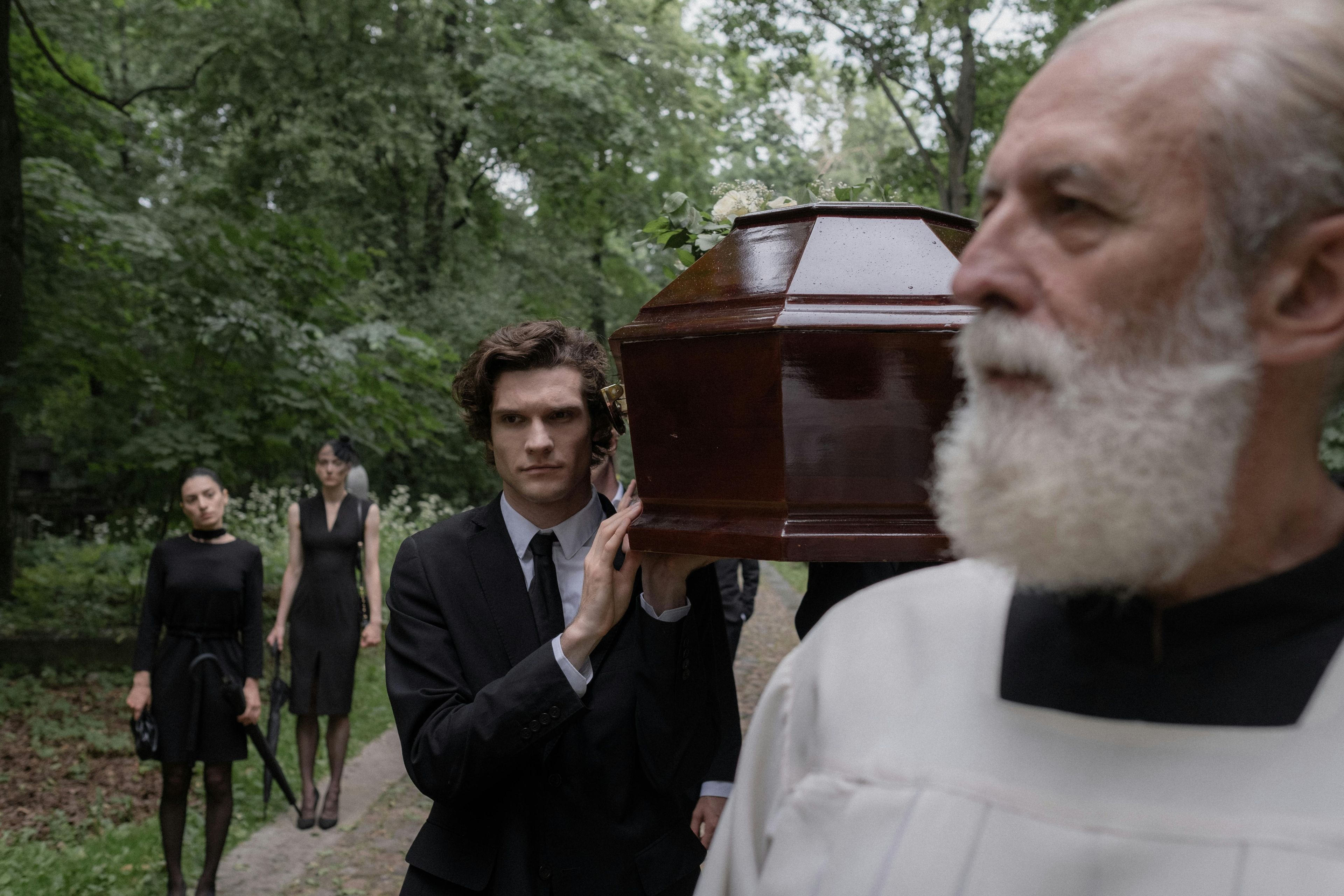The Grief That No One Sees: Why You’re Allowed to Mourn Complicated People
You're allowed to mourn the loss of complicated relationships in a way that makes sense to you.
John is sitting at his brother’s funeral, fidgeting in his wool suit. He debated whether he should attend for hours, and now he’s here, listening to a eulogy about a man who cannot be his brother.

The man in the eulogy was kind, honest, and trustworthy. He was loved and respected by many at work. He will be missed. This is not the brother he knew. John’s brother was cruel and unreliable. He never seemed to overcome the inferiority he felt when he was around John. Everything was a fight. John couldn’t remember the last time they laughed together or enjoyed a meal. They had been estranged for a decade before his death. Family and friends questioned why John came to the funeral. Some of the guests didn’t even know the deceased had a brother.
John can’t reconcile the version of his brother he knew and the one everyone is grieving today. He misses having a brother, but he’s not sure he misses his brother. He knows he doesn’t miss the version of him he knew. And this fills him with endless guilt and shame. Who doesn’t miss their own brother? What kind of person loses their brother and feels nothing but relief?
You’re Allowed To Mourn Complicated Relationships
John is experiencing a type of disenfranchised grief. This grief is not openly acknowledged, publicly mourned, socially supported, or understood, and is often trivialized. This may be because of the manner of death or the relationship to the person. People likely assumed that John wouldn’t grieve the loss of his brother because they were estranged and didn’t like each other. Honestly, John was shocked by the type of grief he felt and the combination of emotions like guilt, shame, and relief after his brother’s passing.
Grief in these moments often isn’t about mourning the person, but mourning the possibility. You might grieve the version of your family member that never existed, the one you wished they could have been. Or the chapter of your life that has now closed without the resolution you hoped for. You may even regret becoming estranged in these moments because everything seems to shift after death. Even if you know you made the right decision logically, your mind can play tricks on you in these moments. Others may find they don’t regret the time missed or the estrangement. That lack of regret can be confusing and shame-inducing as well.
You are allowed to mourn the loss of complicated relationships in a way that makes sense to you. The relationship was complicated, and the grief will likely be complicated, too.
The Emotional Labor Of Grieving Someone You Had To Protect Yourself From
Losing someone who was supposed to love you but treated you poorly is beyond confusing. If this was someone you had to protect yourself from, it’s even more challenging to process the loss of their life and the impact it had on you.
In most cultures, speaking ill of the dead is unpopular, and you’re often seen as cruel and unkind if you don’t join in singing their praises. This is complicated for people who are estranged or were harmed by the person who passed. The commitment to only speaking positively about those who have passed can be a landmine for survivors of abuse. You’re suddenly expected to erase every bad memory and interaction you’ve had with this person because they are no longer alive to defend themselves. You become the enemy when you speak about your personal experiences with them and the pain you suffered at their hands. There are a few reasons why this happens: people are deeply uncomfortable with speaking ill of the dead, they don’t want to admit what happened, and they’re covering up for the other person. Everyone has their own unique reasons for avoiding conversations about abusers who have passed. The need to defend an abusive person seems to intensify after they have passed, and this can be extremely challenging for victims and survivors. When the world paints a picture of someone you didn’t recognize, it can make you question your own reality. “Was it really that bad? Am I just bitter?”
Disenfranchised grief also comes with some uncomfortable and taboo feelings. Relief is one of the most taboo grief responses, especially when the person who died caused harm. It doesn’t mean you’re glad they’re gone. It might mean you’re relieved that the conflict is over, that the threat of a painful reunion is gone, or that you no longer have to keep trying to fix something that broke you. These feelings don’t make you cold-hearted. They make you human.
Erasing Your Grief Hurts You Even More
Complicated relationships lead to complicated feelings. The idea that you’re going to grieve the loss of a problematic relationship in the same way you would someone you were close with will only set you up for failure. You have to admit that this loss is complicated and it’s difficult in its own way. When you allow yourself to acknowledge that this grief is real and it’s not just going away, you can make space for your actual feelings rather than allowing them to fester and intensify.
This is an important practice because grief that goes unrecognized can be harmful to you physically and mentally. Disenfranchised grief has been associated with:
- Depression
- Complicated grief/prolonged grief disorder
- Social isolation
- Decreased self-esteem
It’s okay to honor your truth, even if others are mourning someone else entirely. You don’t have to rewrite your story to make others comfortable. You can miss a person and not want them back in your life. You can grieve someone and still feel relief that they’re gone.